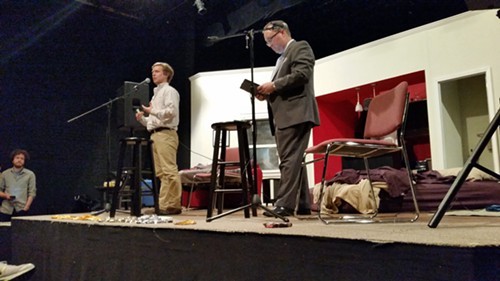Yes, yes, in the wake of the Iowa caucuses, it would appear that the forthcoming March 1st Super Tuesday presidential primary in Tennessee is going to be hard-fought in both parties. And the down-ballot primaries for the one local race, that of general sessions clerk, will no doubt pick up some extra votes from the overflow.
But another political contest, involving any number of prominent local politicians, came out of nowhere on Monday to loom as this year’s feature race-to-be on the August 4th state primary ballot.
The outlook for this year’s race for the 8th District congressional seat transformed itself from a ho-hum incumbency-reelection effort into what is certain to be a hard-fought, free-for-all, with the surprise announcement that incumbent Republican congressman Stephen Fincher of Frog Jump, in Crockett County, would be bowing out after completing the present term, his third. Fincher’s stated reasons were of the sort that could certainly be taken literally, though they hinted at unsaid reasons that the state’s political class will doubtless spend a good deal of time guessing about.
 Jackson Baker
Jackson Baker
Five hopefuls: (from l) Flinn, Kustoff, Kelsey, Leatherwood, and Basar.
“I have decided not to seek re-election to the 8th Congressional District seat this year,” the Republican congressman and well-known gospel singer said, in a prepared mid-morning news release. “I am humbled by the opportunity to serve the people of West Tennessee, but I never intended to become a career politician. The last six years have been the opportunity of a lifetime, and I am honored to have been given the chance to serve.”
But, while political observers were still scratching their heads in amazement, a small host of ambitious Republican politicians swung into action. Almost instantaneously came an announcement from radiologist/radio magnate George Flinn, who has sought the seat before, that he would be a candidate in the 8th again this year.
Flinn, a former Shelby County commissioner and frequent candidate for several other positions, suggested he had intended to challenge for the seat even before Fincher’s announcement and, by implication, might have influenced the incumbent’s decision: “I have been traveling in West Tennessee for the past few months and listening to citizens talk about their lives, what is happening in our community. The overwhelming facts are that Congress has not been doing enough to address our needs. I have heard all of our concerns, and I am convinced that we must act. We are headed in the wrong direction, but we can fix things. That is why I am running for U.S. Congress in the 8th District of Tennessee.”
In rapid-fire order came announcements from other hopefuls, most of them clearly ad hoc statements prepared in haste.
There was this from former U.S. Attorney David Kustoff, who had previously run for Congress in the 7th District, much of which is now in the 8th District: “I want to thank Congressman Fincher for his service to our country and for fighting for conservative values in Washington. I strongly believe our state deserves a congressman who will continue the fight for Tennessee values and principles, and that is why I will be candidate for the 8th Congressional District. ”
And, not long after that, came word from Shelby County Register Tom Leatherwood, who had also previously sought election from the 7th. Said Leatherwood, who was already trying out the rudiments of a campaign speech: “I am throwing my hat into the ring for the 8th congressional seat. I believe I have a very strong, proven conservative record which will resonate in the district, having served two terms in the state Senate, where I helped kill a state income tax twice. I also served on the Senate Finance Committee, where we had to tell people no in order to balance the budget. This is the type of discipline I can bring to Washington.”
Virtually back-to-back announcements then came from state Senator Brian Kelsey and Shelby County Commissioner Steve Basar that they intended to seek the 8th District seat as well.
Kelsey, who has long been expected to seek an open congressional seat, wasted no time in picking up a petition for the 8th District race at the Shelby County Election Commission and featured a photo of that act on his Twitter page. Basar, who had already floated a trial balloon for a candidacy in the 9th District against Democratic incumbent Steve Cohen, said a race in the 8th, where his domicile is, seemed a more obvious route to Congress.
Neither Flinn’s entry nor Kustoff’s nor Leatherwood’s might have been unexpected, given their prior attempts at congressional service. Besides running in the 8th District in 2010, when he finished third in a three-way GOP primary race, Flinn ran unsuccessfully in 2012 as the GOP nominee against 9th District incumbent Cohen. He is well-known for his almost Trump-like willingness to self-fund his political races to the tune of millions.
Kustoff sought the 7th District seat in a four-way GOP primary in 2002 that also included then county commissioner, now state Senate Majority Leader Mark Norris and then City Councilman Brent Taylor. That race was won by current incumbent Marsha Blackburn. Reapportionment after 2010 resulted in the transfer of most of the east Shelby County portion of the 7th district into the 8th, which already included a generous section of northern Shelby County.
Leatherwood pointed out that he won 62 percent of the Shelby County vote in a 2008 direct primary challenge to Blackburn and that his Senate district included Tipton and Lauderdale counties, which also are contained in or overlap the 8th District. The county register also notes that Shelby County has accounted for as much as 55 percent of the total 8th District vote since the new district lines were established after the 2010 census.
That fact, the prominence of Shelby County in the 8th District, and especially of the Republican-dominated portions of Shelby County, may well have influenced Fincher’s decision not to seek reelection this year. He might have had thought processes similar to those of Blackburn, who did well in Shelby County against three natives of the county in the 2002 GOP primary but, as noted, lost the county to Leatherwood in 2008, and subsequently lobbied to move the western boundary of her district out of Shelby County.
Several Shelby Countians, including current Memphis City Council Chairman Kemp Conrad (who may yet be heard from this year), had in previous years thought out loud about a challenge in the 8th District, and have become a crowd, now that the district is an open seat.
Deadline for the Republican and Democratic primaries is April 7th. The Democratic front has been quiet apropos the 8th, but don’t expect that to last.
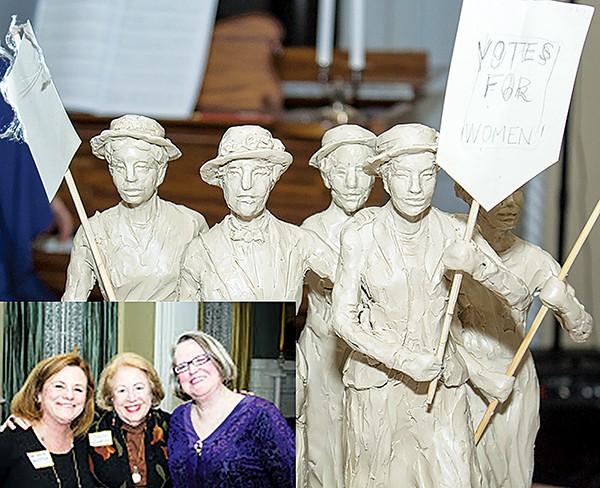 Jackson Baker
Jackson Baker
STANDARD BEARERS — On exhibit at a fund-raiser at the James Lee House last month was an advance model of what will be sculptor Alan LeQuire’s permanent memorial to the Tennessee suffragists who fought for and won the vote for women in Tennessee — the decisive vote for the 19th (or Universal Suffrage) Amendment. The inset shows (l to r) Adrienne Pakis-Gillon, vice president of the Tennessee Woman Suffrage Monument, Inc. board; Perfect 36 member Jocelyn Wurzburg; and board president Paula Casey.
 Jackson Baker
Jackson Baker 
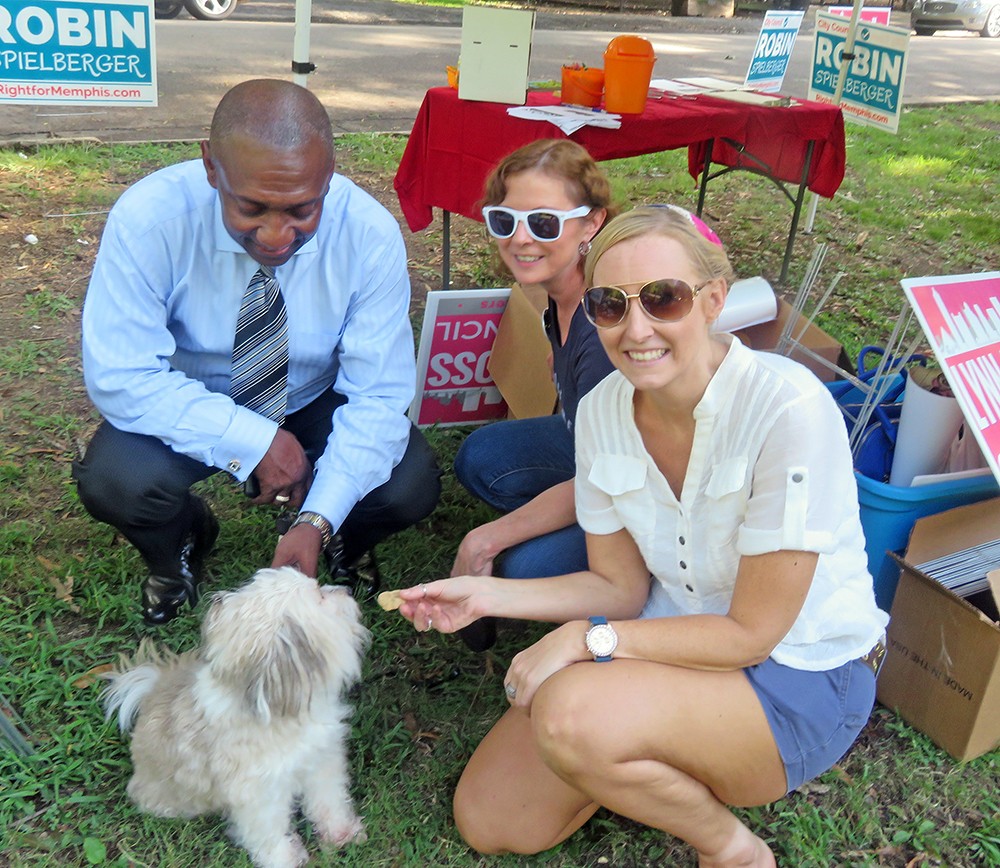 JB
JB
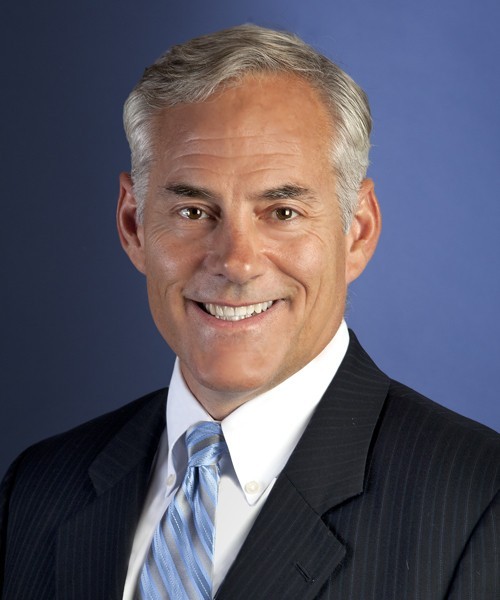
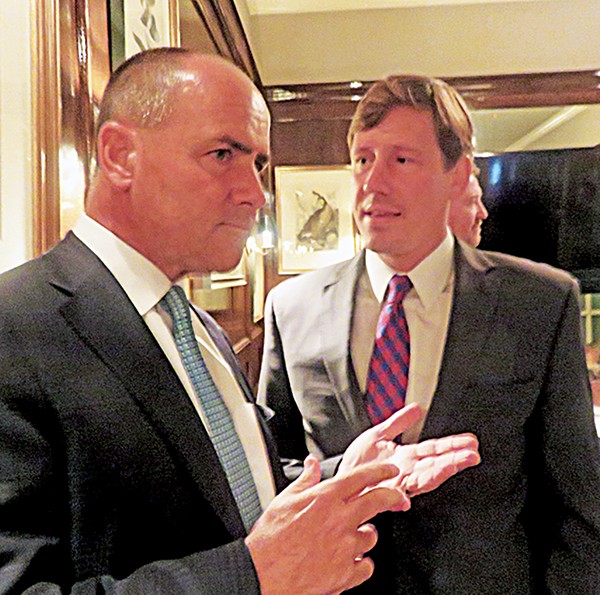 Jackson Baker
Jackson Baker 